An Israeli journalist’s perspective on Israel-Hamas war
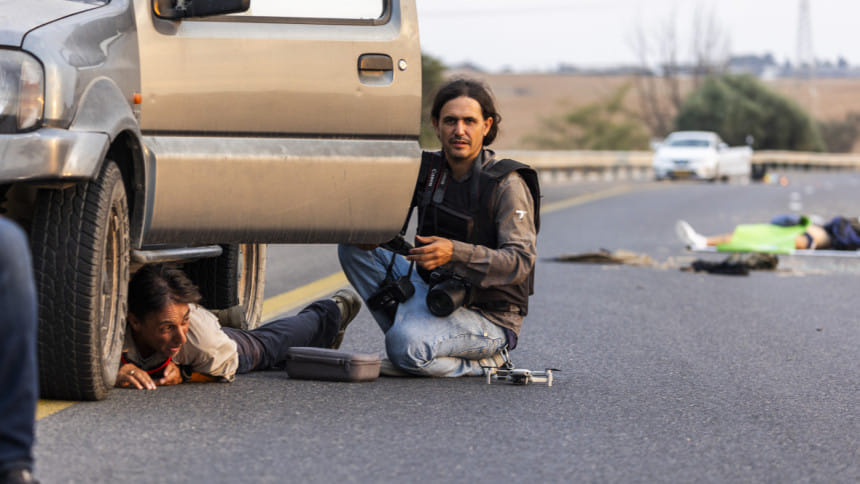
Oren Ziv, a photojournalist covering Israel and Palestine since 2003, currently working with +972 Magazine, speaks to Ramisa Rob of The Daily Star on the ground reality in the West Bank, the Hamas attacks, and public perception in Israel.
Can you describe what's happening in the West Bank right now?
The occupation in the West Bank is increasing compared to what we've witnessed in the last few years, specifically since the establishment of the extreme far-right government. It seems that Israeli settlers and extreme right groups were just waiting for this opportunity to attack Palestinians in the West Bank and grab more land. I've documented cases in villages in Palestinian communities in Area C—which according to the Oslo Accords is under Israeli security's responsibility—where Israeli settlers and soldiers are increasingly uprooting vulnerable Palestinian communities, such as the farmers, attacking and threatening them with a deadline to leave their homes. From October 7 till November 6, as many as 15 entire communities—home to 133 families—have been forced out of their homes; 874 people, including 320 minors, have been displaced. The settlers are taking advantage of the fact that the world's attention is on Gaza. More than 150 Palestinians have been killed in the West Bank since October 7, and the numbers are changing every day. Compared to Gaza, these numbers are obviously small, but when this war ends, we may see that the situation in the West Bank has changed dramatically as well.
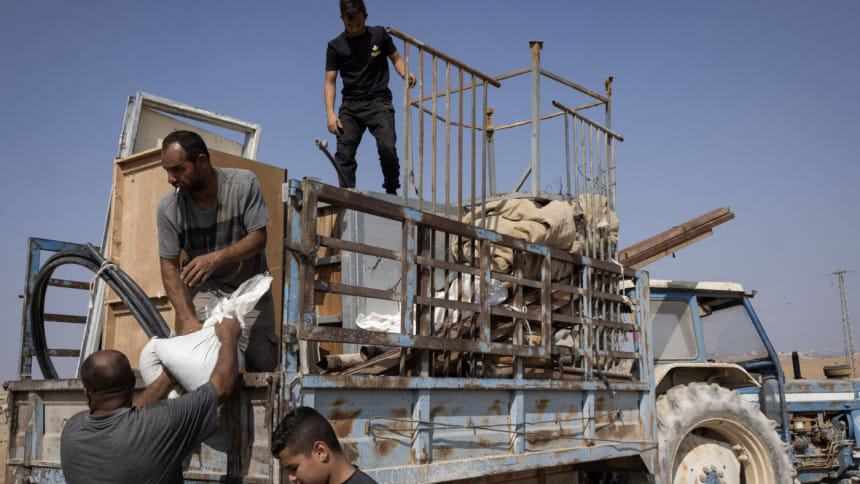
I recently visited the community of Khirbet Zanouta, in the south of the West Bank, and witnessed Palestinian people literally packing their belongings because of an outpost that is illegal not only according to international law, but according to Israeli law too, though they are getting full support from the government.
To track back to the Hamas attack, were you on the ground reporting? Can you describe what you saw?
I woke up to sirens here in Tel Aviv, and drove down to the south of Israel with my colleagues. We got to the city of Ashkelon and witnessed buildings and car parks hit, but there was not enough emergency security to take care of the sites, which is quite unusual in Israel. Later on, we continued to the city of Sderot, and immediately upon entering, we understood it was something different. We saw unclaimed bodies of civilians lying around. The Israeli emergency services are usually quite fast with responding in such circumstances, but this was not the case that night. In the early hours, at the border, we were shot at by Hamas militants from a nearby hill but it luckily hit the car.
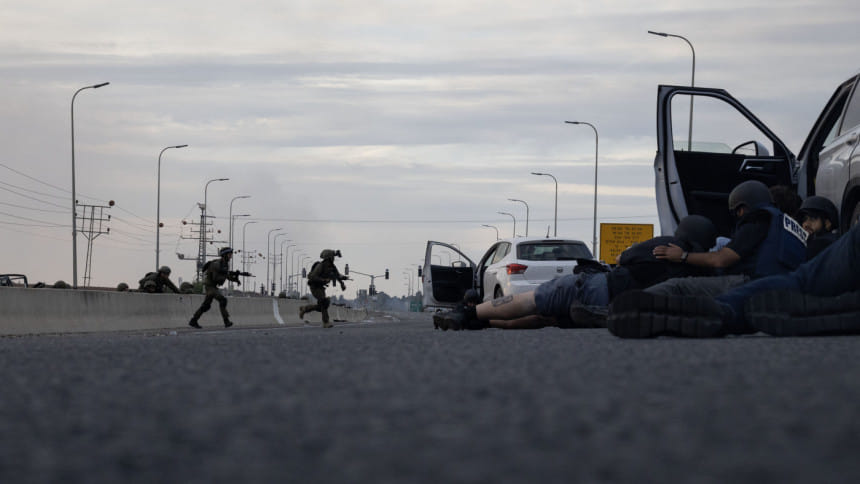
Israel's army is considered the strongest in the Middle East, no matter what one's political opinion is. For people living in the border villages, it was very shocking that the Israeli army did not have the intelligence to anticipate the attack—that it took them hours and days to gain control of the situation. But I can confirm what I saw with my own eyes, documenting from the Kibbutz of Kissufim to the village of Nir Oz and talking to eyewitnesses, that this was a systematic attack with the intention to kill civilians. They went from house to house, it was not here or there, by mistake. It was an organised, well-planned attack. While Hamas did attack military bases, as reported in Haaretz, I think it's important for me to say what I witnessed on the ground, that they also did intentionally target civilians, women and children many of whom were murdered in their homes, in their beds and shelters.
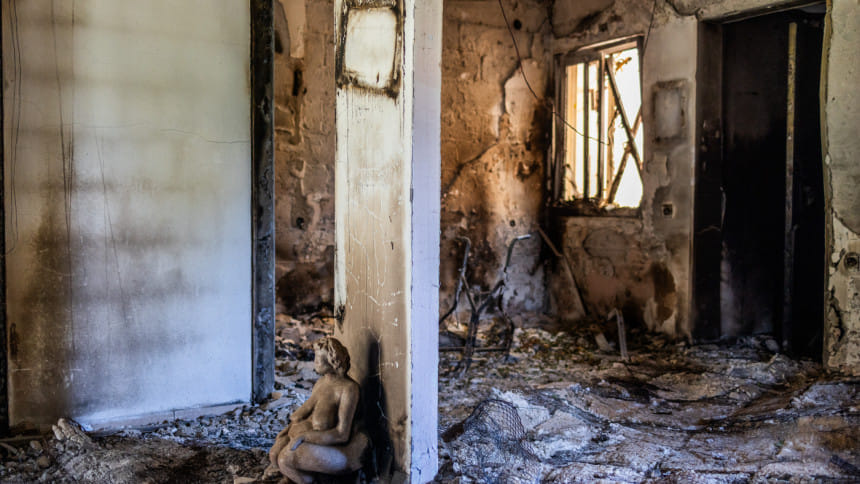
Is Israel's current military operations in Gaza a justifiable response to the Hamas attacks? How do you view it morally and politically?
As a human being first, as an Israeli citizen, as someone who has friends and colleagues in Gaza, I completely reject the Israeli policy of bombing civilians. We have seen this happen in the past, and many of us have been against it. After the Hamas attacks, it seems that Israel has received a free ticket from the world from being criticised for what they're doing in Gaza. For verbiage, I use the term "ethnic cleansing," because I am still trying to be cautious about what words to use; I'm not an expert in the subject of genocide. I base this phrasing on my colleague Yuval's reporting of an official Israeli intelligence ministry document revealing a policy to expel Palestinians out of Gaza Strip.
In Israel, we are also hearing from the families of victims of the Hamas attack that they condemn the targeting of civilians in Gaza in their names. Victims have been saying that this war will not bring back those who have been murdered or bring forth any solution for the return of the hostages. The bombings in Gaza also risk killing hostages; many have raised that concern. Many of the families of hostages we have spoken to feel that the Palestinian prisoners who were held before October 7 should be freed in exchange for the hostages, which is also quite unusual in Israel. So there is no justification for the killings of civilians, innocent women and children in Gaza.
The long-term solution is only diplomatic. I'm not even talking about the moral level now, because even for people who don't share my opinion in Israel, it is very clear that Gazans are not going anywhere—that even the day after the war, if Hamas collapses or leaves to another country, we need a peaceful agreement for people to rebuild their homes and lives. But under this extreme right-wing government, we also acknowledge this will not happen.
There's speculation that Netanyahu will want this war to go on as his political career might come to an end. People in Israel are getting ready to go back to the streets to demand his resignation. Even today (Saturday, November 4) we witnessed a father, who lost his daughter in the Hamas attack, going to protest. People are also saying that it was also Netanyahu's responsibility to prevent the October 7 catastrophe. He has been prime minister for so many years, but has not been to any funerals and barely met the families of hostages. On the other hand, there are individuals in the chief of staff who are saying that it was their responsibility. I believe we may see them resigning in the coming days after the first emergency status ends.
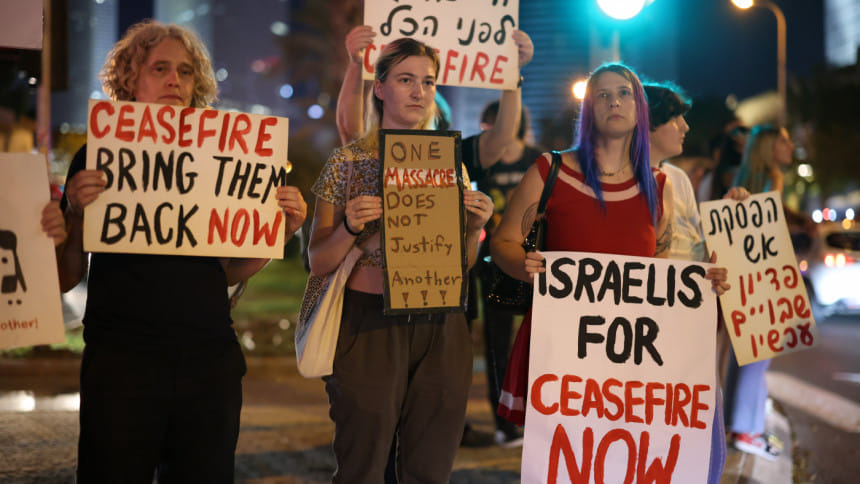
Is there polarisation and repression of free speech regarding ceasefire and solidarity with Palestinians in Israeli society?
During the mass protests in Israel earlier this year, many individuals had said they would refuse joining the army as they viewed that Israel would stop functioning as a democracy after the judicial overhaul. It is different from my own view and others who believe Israel has not been a democracy in the first place, with the occupation in the West Bank and East Jerusalem and siege in Gaza. But when this war started, many people, including those who were protesting, had to join the army out of emergency. Many of them have said that when they return, they will protest against this government. And that is why I think Netanyahu might drag on this operation for months and months. Once the situation gets more stable inside Israel though, I'm certain we will see a crazy wave of protests domestically.
At the same time, we have seen a wave of silencing of mostly Palestinian citizens, as well as the Israeli radical left throughout this government's tenure. In May 2021, there was a crackdown on activists, media and anyone who tried to raise a different position on Gaza. But this time, we are witnessing an unprecedented attack on freedom of speech. The courts, police, right-wing organisations are all ready to crack down on anyone for the simplest of things such as putting up a Palestinian flag or talking about the children of Gaza. On the other hand, there are Israeli settlers on social media calling for the murder of Palestinian civilians in the West Bank. We have seen no action taken against them while the chief of police has openly said that whoever protests for Gaza or supports Gaza will be sent to Gaza in buses—which is completely illegal. This shows you how the chief of police views the law and the citizens.
In Tel Aviv, Israeli Jewish left-wing activists are gathering in solidarity with Gaza and calling for a ceasefire, and police are disbursing it under emergency law. They were very simple peaceful protests. In the Palestinian towns inside Israel, in Haifa and Umm al-Fahm, we have seen police arresting and disrupting demonstrations.
In +972 Magazine, you have been covering "both sides," so to speak. You also co-authored an article about the political prosecution of critics inside the Israeli government. Do you face challenges in your reporting?
The Israeli media does not show what's happening in Gaza; and there have been circulation of many false testimonies and rumours. We try to counter it through media analysis, questioning official data, and with Palestinian writers and photographers reporting from inside Gaza. We have witnessed some attempts at censorship. But one thing I must say: it is unbelievable how the Palestinian journalists continue reporting, even after their houses have been destroyed. The conditions they're subjected to is terrible for anyone to live under, let alone continue risking their lives.
There is a big challenge to cover the truth of both sides. People don't have patience when they're emotional to hear others' stories, and I can also understand that. But it's important for us journalists, who have been covering this for years, to give the context—which is not justifying the murder of civilians on any side. Understanding the context from the perspective of people who live in an open-air prison is essential to understand what's happening now.
What is the key context that people should know from your perspective?
I think it's important to remember that in the 2006 disengagement plan by the centre-right-wing government, Israel withdrew from Gaza but due to pressure from the extreme right wing, they did not want to hand Gaza over to the Palestinian Authority. And then we unfortunately saw Hamas take over. It's also important to recall Netanyahu and his ministers' policy of separating the Palestinian Authority in the West Bank and Hamas in Gaza. Ministers have said that Hamas is good for them politically, to prevent any diplomatic two-state solution. It served their political motives to say that it's "Hamas ruling Gaza" to rule out diplomacy. In terms of recent context, Netanyahu's normalisation agreements with the Arab world, putting the Palestinians aside, hoping everyone forgets about them, just completely collapsed.
Was the two-state solution ever viable from the ground reality?
As someone who's been on the ground for years, I don't think the two-state solution has ever been practical, with the growing number of settlements. Only proper political agreements can bring security for both sides. It's hard to say how things will play out, as political views are changing every minute. After the horrific Hamas attack, many Israelis, busy with mourning and grieving have supported the narrative that all Palestinians should be expelled. But I believe and hope that there will be pushback. Documenting the ground reality myself for years, I believe ending the Israeli occupation will lead to a long-term solution for both Israelis and Palestinians.
We welcome your contributions and analysis of global events. To submit articles to our new page, Geopolitical Insights, please send us an email at [email protected] or [email protected]
Follow The Daily Star Opinion on Facebook for the latest opinions, commentaries and analyses by experts and professionals. To contribute your article or letter to The Daily Star Opinion, see our guidelines for submission.

 For all latest news, follow The Daily Star's Google News channel.
For all latest news, follow The Daily Star's Google News channel. 

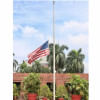
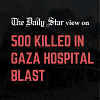
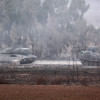



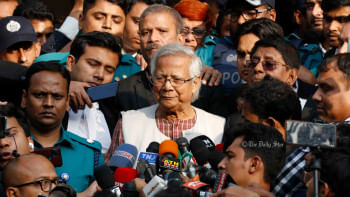

Comments